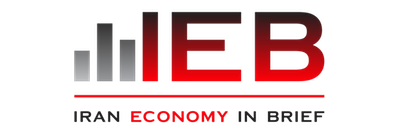
Finally, the Ministry of Agriculture bans all provinces, except Gilan and Mazandaran, from cultivating rice. Cultivation of rice needs lots of water and apart from the two provinces in the north, i.e. Gilan and Mazandaran which are the most wet and humid areas of the country, other provinces do not have the proper weather to cultivate rice.
However, in many provinces, like Isfahan, farmers traditionally used water resources to cultivate rice anyway. But the government is finally going to change this non-efficient scheme.
The Deputy Minister of Agriculture, Ali-Morad Akbari, confirms that the law has been passed by the Parliament and was sent to all authorities in charge. However, he mentions that the new ban applies to the next three years and according to the “country’s need” after this period the it might be lifted or extended.
Divar is an internet platform on which people can sell their goods and services, something very similar to eBay. Although, both of them, eBay and Divar, are founded by Iranian entrepreneurs, but the international version, eBay, is not available in Iran due to the US sanctions. Therefore, a local version of it was founded seven year ago.
In these years, it has sold 1.4 million home-appliances (worth 7000 billion rials), 1.3 million electronic devices (worth 14000 billion rials).
Divar also puts car announcements and it has a share of 20 percent from auto market in Tehran. So far it has put 7.4 million car-sales announcement which have been 6.8 billion times seen.
It also offers the possibility for putting job announcements and through it, 500 thousand people have been hired so far. It also proves to be very efficient; 80% of employers have said that they have succeeded to fill their vacancies within a week.
Prices for dairy products, in particular milk, experienced another big rise. The Minister of Agriculture, Mahmud Hojjati, says that production of milk and its final price depends 26% on imported livestock feed and 74% on the local feed. The recent difficulties in importing goods to Iran increases costs which have direct influence on final prices. Therefore, milk producers have no other choice but to increase their prices.
The price of a one-liter milk bottle for many brands is now around 63,000 rials which few weeks ago was about 45,000 rials, showing nearly 40 percent increase. This rise has also been extended to other dairy products.
However, Mr. Hojjati says that despite rising prices the production is increasing and therefore the government is not worried for the dairy products market.
